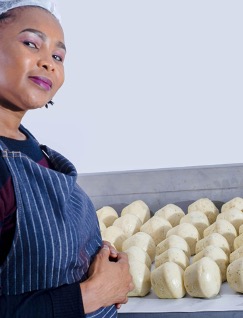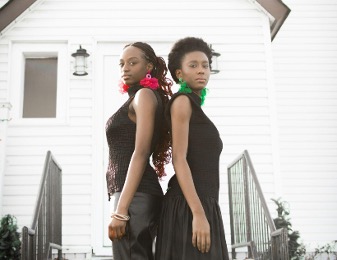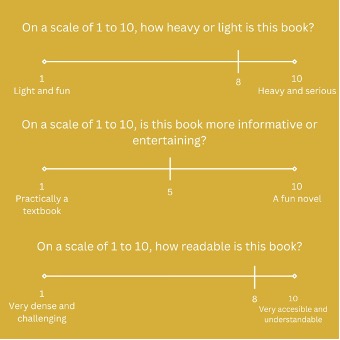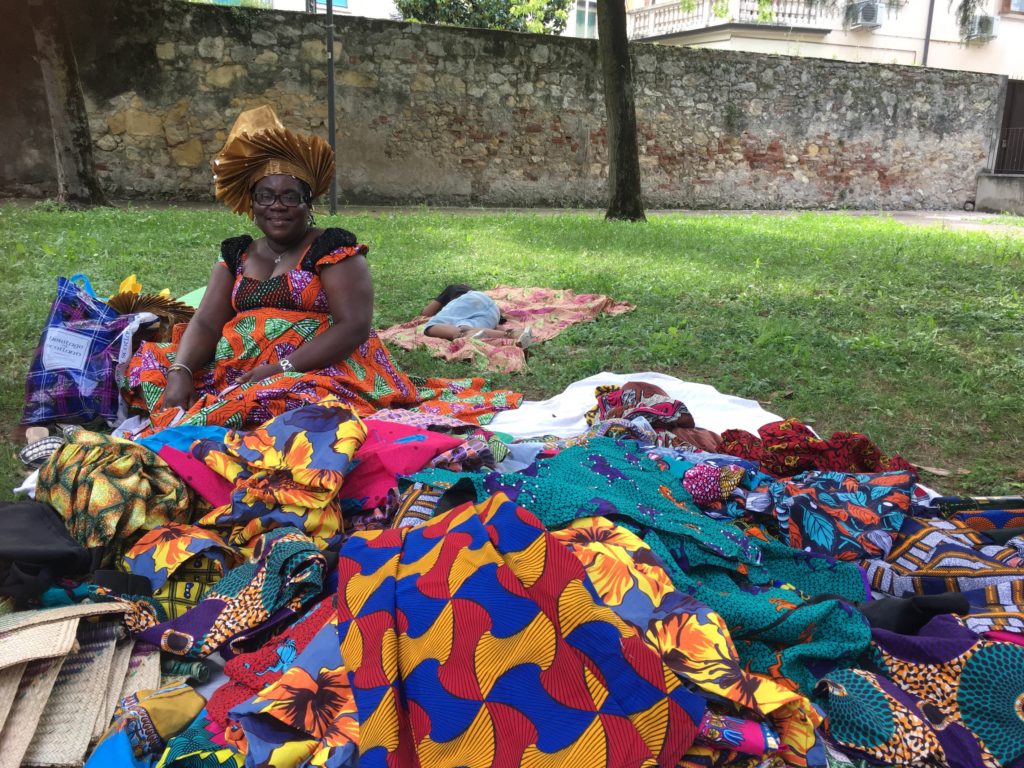As part of the “16 Days of Activism Against Gender-Based Violence” campaign, MWP’s Literature section presents a review of Nightbloom by Peace Adzo Medie, a novel following the journey of two cousins in Ghana united in their experience of GBV despite drifting apart over the years.
Written by Laura Rodríguez-Davis
Born on the same day in Ghana, cousins Akorfa and Selasi begin their sojourn into life together, sharing the many joys of girlhood, complete with Barbies, dance competitions, and whispered secrets. Their early days are marked with the unabashed and naïeve solidarity of young friends who have never known a world without each other and never hope to.
Inevitably, it isn’t long until the stark differences in their circumstances begin to chaff at their bond. As the cousins enter school, Selasi struggles with academics while Akorfa, spurned on by her mother’s medical school ambitions, excels. Akorfa and her family move to a new city as Selasi loses her mother to the birth of her brother. Selasi’s sour relationship with her father leaves her abandoned, and her time with Akorfa becomes strained as the burgeoning gap between them grows.
Selasi continues to fall behind in school while Akorfa strives to achieve her Ivy League dreams to eventually become a doctor in America. Their friendship is increasingly marred by misunderstanding and secrets. The cousins form separate friend groups and become fully estranged as they enter adulthood. Despite not being accepted to an Ivy League school, Akorfa nevertheless attends university in the US while Selasi remains in Ghana.
Selasi’s and Akorfa’s paths seem to diverge irrevocably. Selasi eventually becomes a successful restaurateur and TV personality in Ghana, while Akorfa works in international development in America. They both marry, start families, and settle down in their respective lives. Unbeknownst to each other, they remain connected to each other through an experience of sexual assault at the hands of the same person.
Initially, Nightbloom is told from the perspective of Akorfa, who is confounded by her cousin’s anger and unaware of her own blindspots and her mother’s manipulations. When the narration shifts to Selasi, the reader understands the events of the story in a new light, particularly the depth of Selasi’s tragedies. Still, Selasi’s seeming failures pave the way for her eventual success as a chef and entrepreneur.

When Akorfa’s and Selasi’s stories reconverge, Akorfa has returned to Ghana for the one-year anniversary of her father’s passing while Selasi’s business is threatened by a corrupt but powerful politician who assaults one of her staff. As Selasi handles the repercussions of her confrontation with the minister, Akorfa attempts to meet with Selasi for a confrontation of her own.
When the cousins finally meet, they are rigid in their perspectives of their shared but distant childhoods. Yet, as truths unfold, their shared trauma comes to light:
“It couldn’t be,” Selasi thinks, “It couldn’t be that we had both gone through the same hell.”
This revelation is not the cure-all for Akorfa and Selasi’s relationship. They return to their lives with their differing resolutions. However, in a final act of sisterhood, Akorfa gives Selasi the key to bringing down her pestering politician. Their differences may not be entirely reconcilable. But the understanding of gender-based violence (GBV) and its sinister pervasiveness perpetuated by shameful silence and cultures driven by keeping up appearances allow Akorfa and Selasi to form a poignant, if shaky, truce.

Peace Adzo Medie is both a novelist and scholar. Her research focuses on violence against women in Africa, which led her to conduct over three hundred interviews, many of which featured survivors of sexual violence. From these interviews, she learned one of the most significant concerns for survivors is the response of their community, which often leads them to avoid filing a police report. By contrast, when they felt supported by loved ones, they were more likely to report the assault.
Medie’s expertise on this subject clearly informs her writing, as Akorfa and Selasi are confronted with obstacles from within their own communities: Akorfa, her mother’s silence, and Selasi, her husband’s need to save face. The impact of sexual violence on not just the victims but their relationships with others is devastatingly evident throughout the novel. Indeed, even the relationship between the cousins is forever changed. Selasi and Akorfa have built communities apart from one another, and yet, they will always share this tragic connection of abuse shrouded in familial secrecy.
Interwoven into Selasi and Akorfa’s story is an awareness of other social factors at play in their different experiences, including class and discrimination. Akorfa is confronted with Western manifestations of racism while living with her roommate at a university in Pittsburgh. Meanwhile, Selasi is troubled with classism and rampant, unchecked misogyny in her home in Ghana.
It’s easy to be inspired by Selasi’s resilience and tenacity. Her ambition is not spoiled despite the tarnishes to her reputation and the general unfairness of her circumstances. Similarly, it is tempting to be frustrated with Akorfa’s ignorance of her own privilege due to her affluence. Nevertheless, she remains a sympathetic character as an unprotected daughter and an emblem of the wrongness of VAWG regardless of one’s advantages. Anyone who has self-sabotaged or killed a dream because of their trauma will find resonance in Akorfa.

Despite directly addressing such a stigmatised and troubling topic, Medie preserves the dignity and agency of her protagonists and smartly avoids delving into ‘trauma porn’. Simultaneously, Medie’s scholastic background does not interfere with the flow of the narrative. Never is the story pedantic or didactic. It is grounded and honest, born of actual experiences. And given how universal GBV/VAWG is, many migrant women will identify with Selasi and Akorfa.
Peace Adzo Medie’s Nightbloom artfully demonstrates the value of using fiction to tell the truth. When cold facts and figures are often sterile and forgettable, stories such as these remain with the reader long after the last page is turned. In her research, Medie discovered many survivors were generous with their stories and willing to share with an understanding, non-judgmental listener. But for the many women who find they are unable to share their stories, they will not be forgotten or erased, for they will be remembered in Akorfa and Selasi.

If you or someone you love needs help due to domestic abuse or gender-based violence, you can find assistance at Women’s Aid and the National Domestic Abuse Hotline at 0808 2000 247.

Laura Rodríguez-Davis is a writer based in Belfast, Northern Ireland. Born in Florida to Puerto Rican parents, she is a proud Latina, wife, dog mum, and book lover. Her passions include theatre, justice, conflict transformation, and napping.



